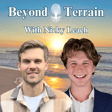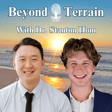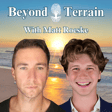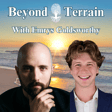
Abigail Puccioni on German New Medicine, Resolving Conflicts, Holistic vs. GNM, Symptoms, and More!
This episode marks one year of podcasting! We are delighted to have Abigail Puccioni on to discuss an extremely important topic: German New Medicine (GNM). These teachings are at the forefront of the paradigm shift occurring before our eyes!
This episode ties in very well with the one we did with Dr. Melissa Sell. Today, we discussed some fundamental underpinnings of GNM, including the role of symptoms and the significant difference between the GNM paradigm and the old holistic paradigm.
We also discussed conflict shocks and how GNM approaches healing conflicts, focusing on practical resolutions versus perceptual resolutions.
We hope you enjoy this episode! I know I did!
Keep up with me (socials)
https://www.instagram.com/beyond.terrain/
https://linktr.ee/beyondterrain
Our vision at Beyond Terrain is best supported by sharing our work!
To go above and beyond:
BCH: bitcoincash:qq7eq276ylanluc5e39unrqshkvs9xsemg07yxezf7
ETH: beyondterrain.eth
BTC: bc1qqwc470ktgj3l4myqxr5hq67rnlqys0qm98u6f0
Learn more from and support our esteemed guest, Ms. Abigail Puccioni











![DNA Doesn't Exist & Genomic Nonsense with Dr. Jerneja Tomsic [Part 2] image](https://media.zencastr.com/cdn-cgi/image/width=112,quality=85/image-files/652933f3a749dc383eb375de/ce5a5fd9-98c9-44fe-9b4b-3d0cd5abcf29.png)






